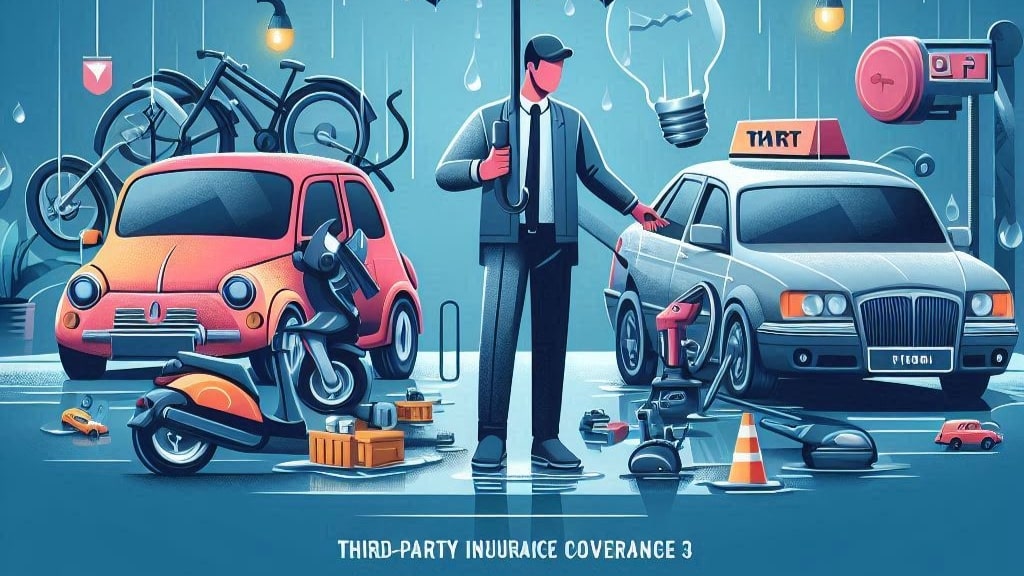Third-Party Motor Insurance Coverage in India, Know When It Will Cover When It Will Not

In India, third-party motor insurance is a legal requirement for all vehicle owners. While this insurance provides essential protection against liabilities arising from accidents involving third parties, there are specific circumstances under which insurers may deny claims. Here we explores the conditions leading to claim denials, the implications of these denials, and the legal context surrounding third-party motor insurance.
Key Points To Know
- Legal Requirement: Third-party motor insurance is mandatory for all drivers in India.
- Claim Denial Circumstances: Insurers may refuse claims due to unpaid premiums, driving under the influence, lack of a valid license, and absence of a vehicle fitness certificate.
- Claim Limitations: There is no limit on the number of claims that can be made, but there are monetary limits on property damage claims.
- Third Parties Defined: The term ‘third party’ excludes occupants of the insured vehicle unless additional coverage is purchased.
- Legal Recourse: Policyholders have avenues for dispute resolution through the Motor Accident Claims Tribunal (MACT) if claims are denied.
Detailed Breakdown
1. Legal Requirement for Third-Party Insurance
Driving without third-party insurance in India is illegal, exposing drivers to significant financial risks if involved in an accident. This insurance, often referred to as an “act-only” policy, is mandatory for both two-wheeler and four-wheeler vehicles. It primarily serves to protect against liabilities arising from damages to third parties, which can include pedestrians, other vehicles, and property.
2. Circumstances Leading to Claim Denials
Despite having a valid third-party insurance policy, there are several conditions under which insurers may deny claims:
- Unpaid Premiums: If the insurance policy has lapsed due to non-payment of premiums, the insurer is not obligated to honor any claims resulting from accidents occurring during this lapse.
- Driving Under Influence: Claims may be denied if the driver is found to be under the influence of alcohol or drugs at the time of the accident. This condition is emphasized by industry experts, who assert that such violations are grounds for rejection.
- Invalid License: A claim can be rejected if the driver does not possess a valid driving license. Additionally, using the vehicle for purposes not covered by the policy (e.g., commercial use of a private vehicle) can also lead to denial.
- Lack of Fitness Certificate: The absence of a valid vehicle fitness certificate at the time of the accident can also result in claim denial. New vehicles require a fitness certificate to be renewed every 15 years, and older vehicles must renew every five years thereafter.
- Grace Period Absence: Third-party insurance policies do not allow for a grace period regarding premium payments. Claims are only valid if the policy is active at the time of the incident.
3. Claim Limitations and Coverage
There is no limit on the number of times a third-party claim can be made during the validity of the policy. Each incident leading to injury, death, or property damage can result in a separate claim, provided it occurs within the policy period.
- Monetary Limits: For property damage, the typical coverage limit is up to ₹7.5 lakh, although this limit was reportedly eliminated under amendments made in the Motor Vehicles Act in 2019. For bodily injury or death, there is no monetary limit on the compensation provided to third parties.
- Types of Coverage: Insurers offer limited and normal third-party plans. Under a limited plan, coverage for property damage may be capped at ₹6,000, meaning any damage exceeding this amount must be covered by the insured.
4. Definition of Third Parties
The definition of ‘third parties’ under the Motor Vehicles Act excludes passengers in the insured vehicle. Therefore, if an accident results in injury or death to the vehicle’s occupants, they are not eligible for compensation under standard third-party insurance policies. However, additional coverage options, such as Personal Accident Cover for unnamed passengers, can be purchased to provide some level of protection for these individuals.
5. Legal Recourse and Dispute Resolution
In cases where claims are denied, policyholders can seek resolution through the Motor Accident Claims Tribunal (MACT) or a competent court. The tribunal will assess the evidence and circumstances of the case to determine the liability of the insurer and the insured. Additionally, if an insurer pays a claim but later discovers a violation of the policy terms, they may recover the amount from the insured through a process known as subrogation.
Indian High Courts Rulling Over Insurance Policy holders & Providers
- According to industry experts, the Karnataka High Court ruled that an insurer could be liable for compensation even if a premium payment cheque bounces, provided the policyholder was not informed of the dishonor before the accident.
- The Rajasthan High Court confirmed that occupants of an insured vehicle are not considered third parties under the Motor Vehicles Act, reinforcing the need for additional coverage options for passenger protection.
- The legal landscape surrounding third-party insurance is complex, with varying interpretations and rulings that can influence policyholder rights and insurer obligations.
Final Takeaways
- Third-party motor insurance is essential for legal driving in India, but policyholders must be aware of the conditions that could lead to claim denials.
- It is crucial to maintain active policies, ensure valid licenses, and adhere to all regulations to avoid financial liability in the event of an accident.
- Understanding the limitations of coverage, especially concerning third-party definitions and monetary limits, is vital for effective risk management.
- Policyholders have legal recourse through tribunals if claims are unjustly denied, highlighting the importance of being informed about one’s rights and obligations under the insurance policy.